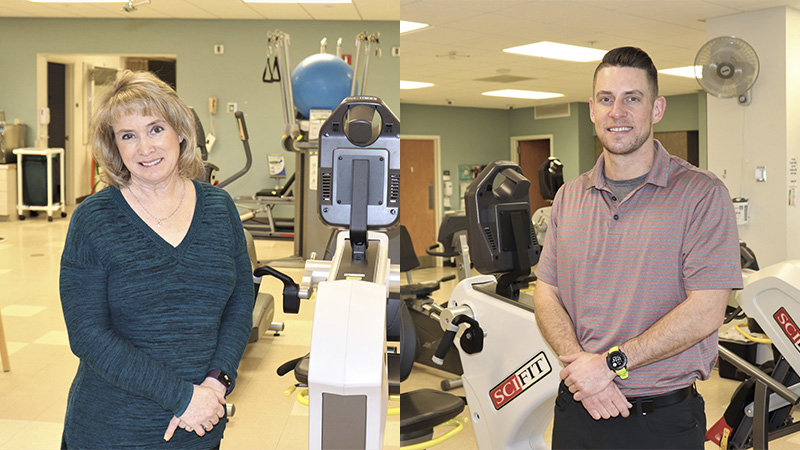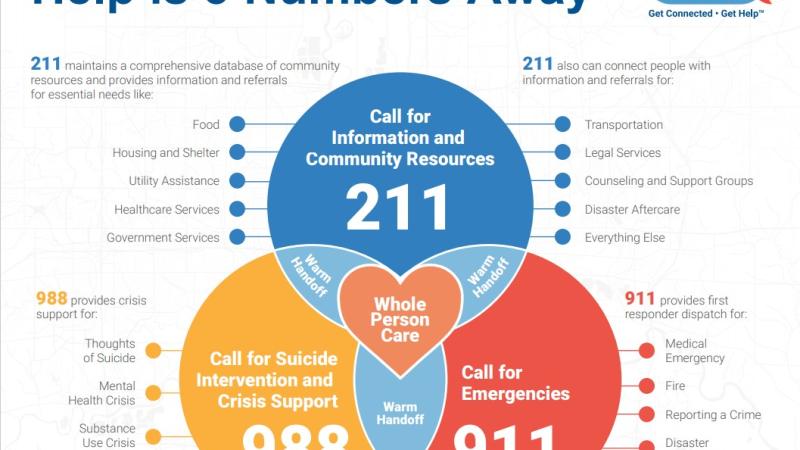
Mary Smith, RN, is the supervisor of Cardiopulmonary Rehabilitation at St. Peter's Health and has been with the organization for over five years. Doug Wandke, MPH, is the lead exercise technician in St. Peter's Cardiopulmonary Rehabilitation and has been with St. Peter's for three years.
February 8, 2023
It’s no secret that heart disease is the leading cause of death in the United States with more than 600,000 deaths each year. February, also known as American Heart Month, gives us all an opportunity to examine our own heart health, factors which may impact our cardiovascular health status, and steps we can take to reduce the risk of developing heart disease; all while improving our overall well-being and quality of life.
As cardiopulmonary rehabilitation specialists, our jobs call on us to care for patients who have experienced a cardiac event such as a heart attack or cardiac arrest and help them take steps towards leading a newer, heart healthy lifestyle. We do this by providing a safe environment for patients with cardiac health issues to exercise under supervision; developing individualized protective health habits and plans; and helping to improve health outcomes in the months and years following their diagnosis. But rehabilitation after a cardiac event isn’t our only role - we are passionate about proactive heart disease education and prevention, too!
According to the Centers for Disease Control (CDC), roughly half of all Americans have at least one of the three risk factors for heart disease: high blood pressure, high cholesterol and smoking. Knowing this, here are steps you can take to reduce these risk factors:
Know your blood pressure
Hypertension, or high blood pressure, is regarded as “the silent killer” because often times, symptoms go unnoticed. If left untreated, hypertension can cause kidney damage and can lead to dangerous conditions such as an aneurysm (a ballooned or blocked artery) and stroke.
What can you do to reduce your risk of developing hypertension?
- Moderate your sodium and alcohol intake
- Quit using tobacco products
- Make sure to get enough sleep
- Maintain a healthy weight
- Focus on quality nutrition
- Prioritize exercise and physical activity
Reduce your cholesterol
In addition to taking prescribed medication to reduce your cholesterol levels, there are also simple lifestyle changes you can make. Similar to lowering your blood pressure, quitting tobacco, exercising regularly and limiting your alcohol intake are all great steps to take for reducing your cholesterol. Another is focusing on eating heart healthy foods. You can start by focusing on decreasing or eliminating your intake of saturated fats and trans fats. Saturated fats are commonly found in red meat and full-dairy products, and trans fats are often attributed to the use of vegetable oil in products like baked goods. Instead, focus on eating foods that are rich in omega-3 fatty acids like salmon and walnuts, and increase your intake of soluble fiber by consuming products like oatmeal and fruit. Reducing your cholesterol can reduce your risk of heart disease.
Stop smoking and tobacco use
According to Mayo Clinic, within three months of quitting smoking, your blood circulation and lung function begins to improve and within a year of quitting, your risk of heart disease is half that of a smoker. Quitting smoking or the use of tobacco products can be hard though. There are great programs including ones locally that can help you quit. The Montana QuitLine is a free program available to any nicotine user and utilizes the use of medication and/or nicotine replacement therapy along with behavioral counseling over the phone (or text) to help users quit for good. The American Lung Association also has great resources to help you find information about programming and the best way to approach quitting for you.
This heart health month, dedicate some time to focusing on reducing your risk for heart disease. What small changes can you make daily that will help you lead a more heart healthy lifestyle?


